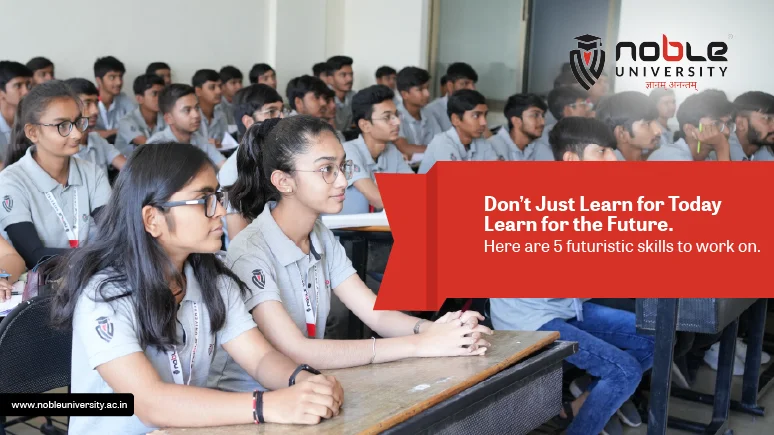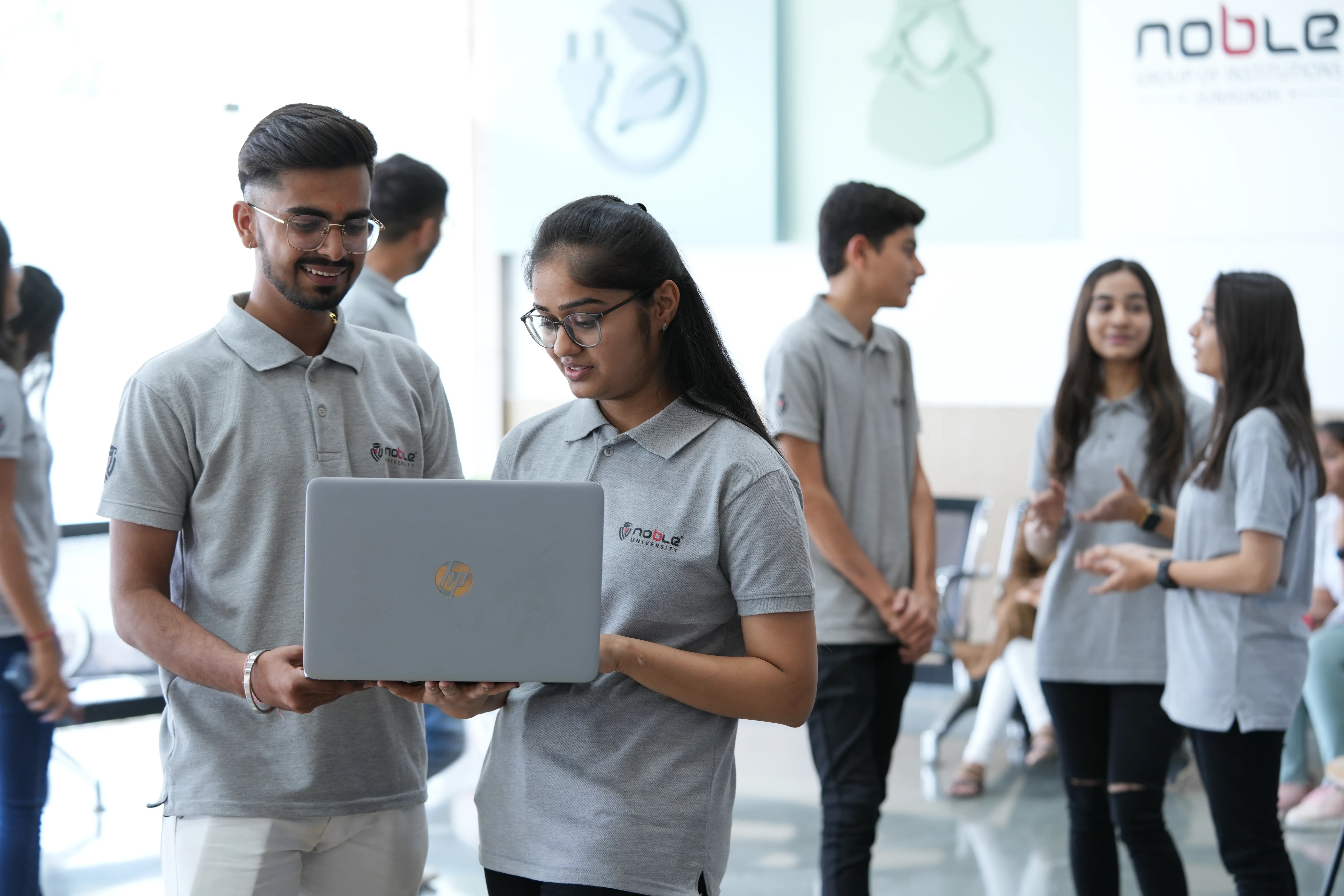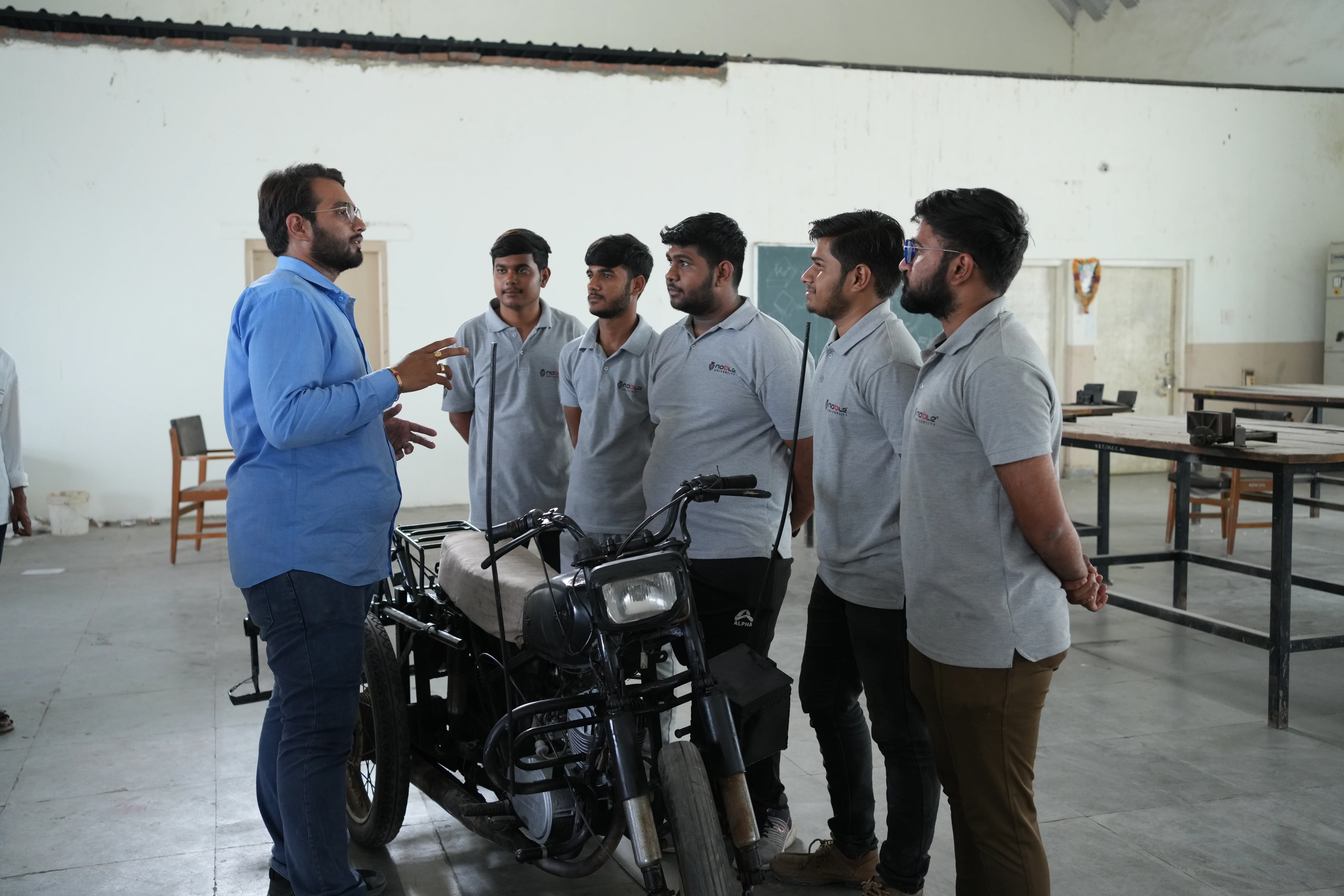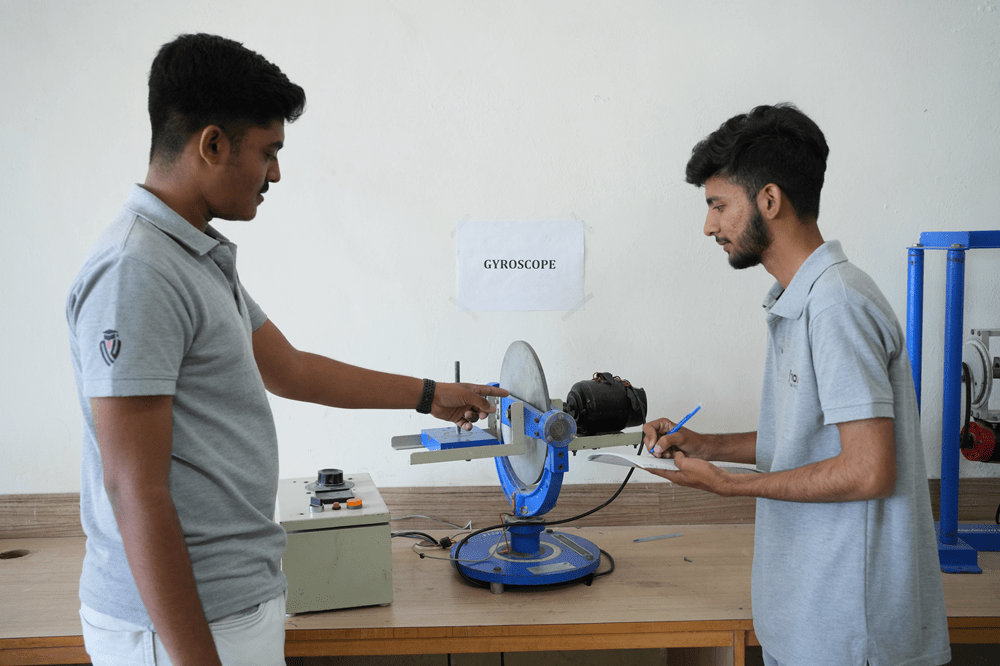
5 Futuristic Technologies Every Student Should Learn Before 2030
The pace of change today is faster than ever; what seems futuristic now might become outdated by the next decade. The world is moving towards an era where technology is not just an industry but the language of every profession.
Whether you dream of becoming a biotechnologist, designer, lawyer, or entrepreneur, understanding how digital innovation shapes your field is no longer optional; it’s essential. By 2030, the most successful professionals won’t just use technology; they’ll think with it.
In this blog, we will explore the possible technologies that every student must learn to become a successful professional.
Technologies Redefining Learning and Careers
Before we dive into each innovation, imagine a classroom where AI helps you learn at your own pace, blockchain secures your academic records, and VR lets you conduct experiments in virtual labs.
These aren’t distant dreams; they’re already shaping how students learn and work. Here are five transformative technologies every student should explore before 2030.

1. Artificial Intelligence & Ethical AI
Artificial Intelligence (AI) is already revolutionizing industries from personalized education to predictive healthcare. However, as AI becomes increasingly powerful, understanding its ethical implications becomes just as crucial. Students who learn AI alongside ethical reasoning will be able to design systems that are intelligent and responsible.
Educators play a very important role when it comes to adopting AI. Read this insightful blog, which discusses the Roles of Educators in the AI Era and explores how teachers and learners alike must evolve to keep pace with this digital transformation.
2. Blockchain Technology in Education
Blockchain isn’t just about cryptocurrency; it’s transforming how institutions store and verify data. Imagine a world where degrees, certificates, and even research papers are stored securely on decentralized ledgers, eliminating fraud and simplifying global verification.
Students who understand blockchain fundamentals will hold the keys to building transparent, efficient, and trustworthy digital systems, an area that overlaps deeply with cybersecurity and information management. In the coming years, blockchain technology in education will be one of the most impactful trends shaping how academic credibility and data security evolve.
3. AR & VR: Immersive Learning Beyond Textbooks
Augmented Reality (AR) and Virtual Reality (VR) are redefining how students interact with knowledge. Instead of reading about the solar system, you can walk through it. Instead of studying anatomy from a chart, you can explore a 3D model of the human body.
This experiential learning isn’t just engaging; it also improves memory retention and brings abstract concepts to life. As education becomes more immersive, students who can harness AR and VR tools will have a competitive edge in both academics and careers.
4. Quantum Computing Basics
Quantum computing is the next big leap, one that’s rewriting what’s possible in problem-solving and data analysis. Although it sounds intimidating, students today have access to beginner-friendly quantum simulators and online platforms that make learning accessible.
By understanding its basics, you’re not just preparing for a niche tech future; you’re stepping into a world where computing will be millions of times faster and smarter than today’s machines.

5. Biotechnology for the Future (for PCB Students)
For students with Physics, Chemistry, and Biology backgrounds, biotechnology will be one of the most promising fields over the next decade. From sustainable agriculture and genetic engineering to diagnostics and biopharmaceuticals, biotech innovations are driving real-world change and opening diverse career paths.
Students interested in this area should look for an accredited B.Sc. Biotechnology programs or interdisciplinary courses that combine life sciences with data skills such as bioinformatics and computational biology. Hands-on lab experience, internships, and basic coding or data-analysis skills will make PCB students far more competitive in this fast-evolving field.
Why Learning Future Tech Skills Matters
In a world powered by automation, creativity and adaptability are your real superpowers. Learning emerging technologies isn’t just about securing jobs; it’s about understanding how the world works and how to improve it. Students who invest in these future tech skills early on will find themselves better equipped to handle the unknown challenges of tomorrow, from AI-driven economies to climate tech innovations.
Interdisciplinary knowledge blending AI with healthcare, or blockchain with business, will set apart leaders from followers. The most successful graduates will be those who can connect disciplines, not just master one.

Preparing for 2030: The Role of Universities
Forward-thinking universities are already rewriting their curricula to prepare students for the future. They’re not just teaching tools; they’re teaching mindsets. At Noble University, the focus is on holistic, interdisciplinary education that empowers students to think critically, innovate ethically, and adapt globally.
Whether it’s AI, biotechnology, or blockchain, the university ensures every learner is ready for the next wave of transformation through experiential learning, modern infrastructure, and globally aware faculty. Noble’s commitment to continuous evolution ensures that students don’t just study technology; they shape it.
Build a Tech-Savvy Future at Noble University
By 2030, the boundary between “tech” and “non-tech” careers will blur completely, and those who are future-ready will lead the change. The world is changing faster than ever, and Noble University ensures you’re ready for it.
From forward-thinking courses to mentors who bridge innovation with values, every student here is prepared for the future. Discover our academic identity, connect with our Admission Offices, and take your first step toward a brighter tomorrow at Noble University.
Start your journey at Noble University today.

FAQS
By 2030, AI, quantum computing, robotics, biotechnology, blockchain, and sustainable energy systems will redefine how industries function. Students who understand these technologies will be at the forefront of innovation and problem-solving across every sector.
Critical thinking, data literacy, creativity, and emotional intelligence will be as important as coding or technical expertise. The ability to adapt and learn continuously will define success in an automated world.
Students at Noble University can focus on AI, data science, robotics, cybersecurity, and cloud computing to stay future-ready. These domains are integrated into the university’s forward-thinking academic approach.
AI and ML will create millions of roles in data analysis, automation, healthcare, and smart infrastructure. India’s workforce will shift from repetitive tasks to high-value creative and analytical positions.
Absolutely, robotics and automation form the foundation of Industry 4.0. Engineering students with hands-on experience in these fields will have a strong competitive edge in both research and employment.
Noble University offers comprehensive programs and practical exposure in AI, ML, and data science, guided by industry experts. Students here learn through real-world projects that prepare them for future-tech careers.
Students can begin with foundational courses in physics, mathematics, and programming before advancing to specialized modules or workshops. Noble University encourages early exposure through interdisciplinary learning and lab-based innovation.
At Noble University, AI/ML courses emphasize both technical mastery and ethical responsibility. Students gain access to industry-aligned curricula, live projects, and mentorship that prepare them for leadership in the digital era.
A mix of programming, design thinking, and problem-solving skills will help students thrive in AR/VR and IoT fields. Understanding user experience and hardware integration also plays a crucial role in these domains.
Extremely important as AI influences decisions across sectors, understanding its ethical implications ensures fairness, transparency, and accountability. Students trained in ethical AI become responsible innovators, shaping a just digital future.
Yes, modern diploma and undergraduate programs that integrate coding, AI, and IoT modules equip students for the future workforce. Noble University’s curriculum bridges theoretical concepts with practical applications.
Limited infrastructure, outdated curricula, and skill gaps among faculty often slow down tech adoption. However, institutions like Noble University are leading change by blending innovation, research, and industry collaboration.



